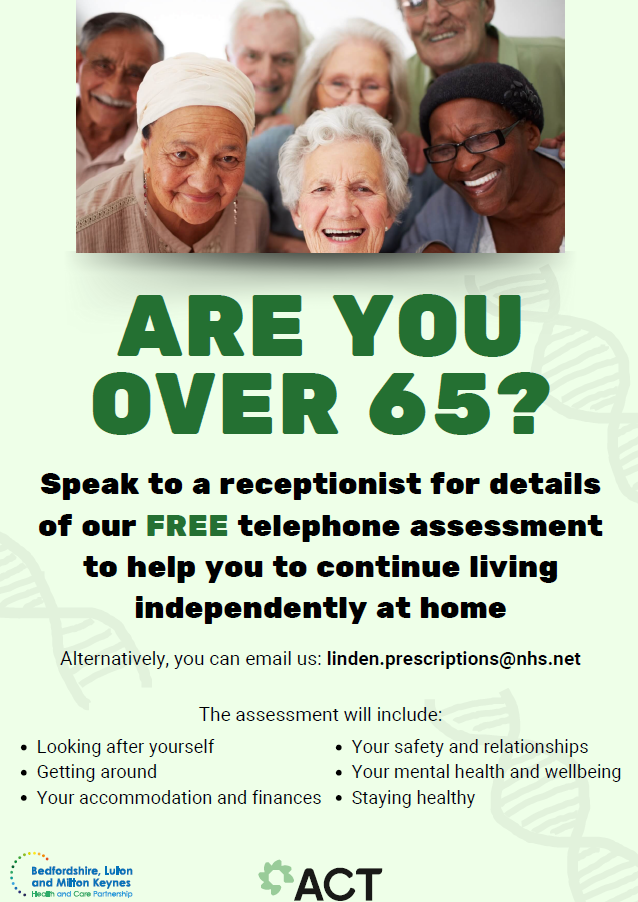

Age Care Technologies Project briefing for PPG
Background regarding ACT:
- Based on 35 years of international research focused on improving the lives of older people.
- Aims to help older individuals identify concerns that matter to them and connect them with services to address those concerns.
- The ACT model is used globally and supports the World Health Organization (WHO) in its work with older populations.
Project Overview
- The ACT project is being implemented in Linden Road and two other areas in Bedford (Putnoe Health Centre and Queens Park).
- The project follows an 8-step process:
1. Targeting
- Focus on:
- Individuals aged 65+ with indicators of deprivation.
- Individuals aged 75+ living at home.
2. Engagement
- Contacted via GP Practices with an explanation of the project.
3. Assessment
- Anticipatory Care Assessment conducted by the ACT National Contact Centre trained in empathy.
- Assessment covers the top 56 threats to independence in old age, across 6 domains.
- Many people live with these issues but could benefit from available services.
4. Connection
- Review concerns and signpost to local support services.
- Provide access to information resources and the Restless service.
- Can also signpost to carer support.
- Additional screening for:
- Cognitive impairment
- Depression
- Injurious falls
- Safeguarding concerns
- Incontinence
- Care Needs Assessments
5. Reporting
- A personalised report is generated for each participant.
6. Follow-Up
- Follow-up to assess satisfaction and effectiveness of the signposting.
7. Insight Report
- Compare local data with global benchmarks.
- Provides needs-based assessment for population management.
8. Evaluation
- Determine next steps for scaling the project.
- Includes:
- Learning log
- Satisfaction of assessees
- Satisfaction of delivery team
- Outcomes achieved

Additional Discussion Points – Q&A from Putnoe Health Centre PPG
Is this a one-off exercise? This is Stage 1 of what we hope will be a 3 stage process in Bedford. Stage 1 is adapt and demonstrate. If it has merit, then we will move to stage 2 in year 2 with more people benefiting. With more numbers the benefits will be easier to report. Cost benefits, quality of life. Stage 3 will be the steady state approach of use in Bedford – scale.
Who is funding this project? Bedford Borough Council and the Integrated Care Board (ICB) are funding the project.
How do you identify who is participating? We will use practice lists to identify the individuals.
Concern about the individuals – the people who need it most often aren’t the ones who will engage. In the Bridlington project it was found that word of mouth helped.
Online resource concern – particularly access to restless (online club) – in areas of deprivation how will these services be accessed? Sign-post to local services with the offer of national services.
Some people are automatically excluded if they can’t access online services. This can be handled via F2F options or via the follow-up path whereby individuals will be contacted to see if they’ve used the resources/ whether they require help to access the resources.
How are we linking to social prescribers? Some of the individuals we contact will be sign-posted to social prescribing but we will sign-post to other services to try and reduce the burden.
Will the final report be made available publicly? Final report will be available publicly
